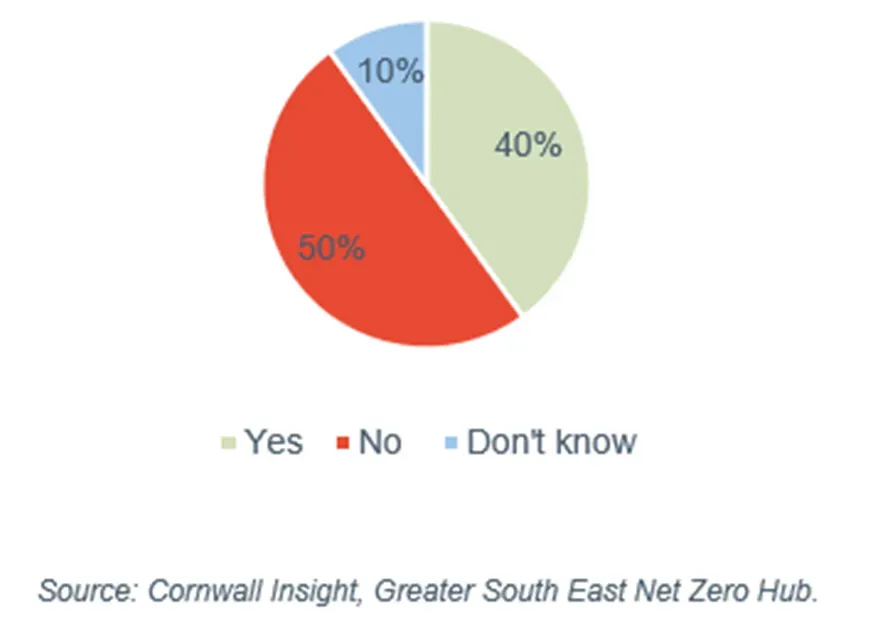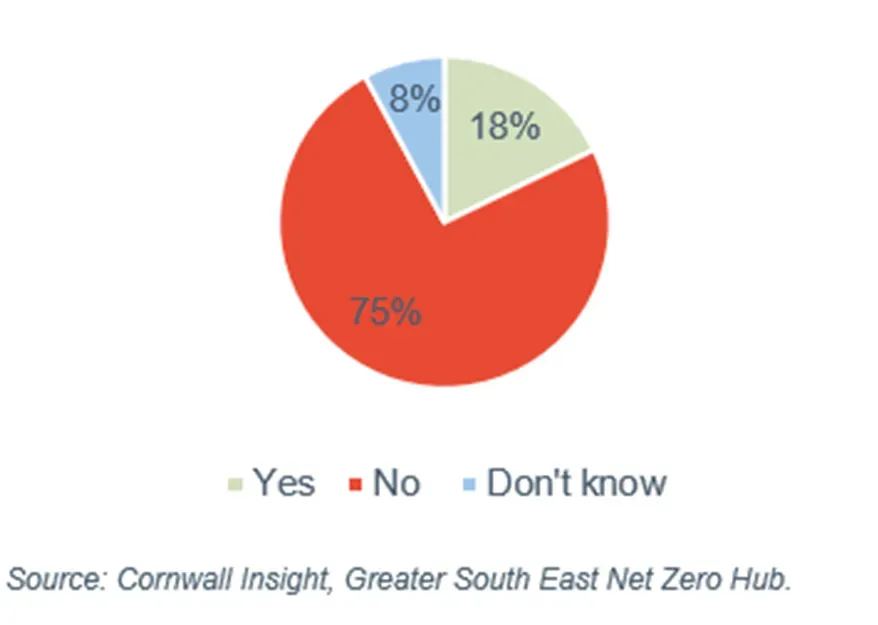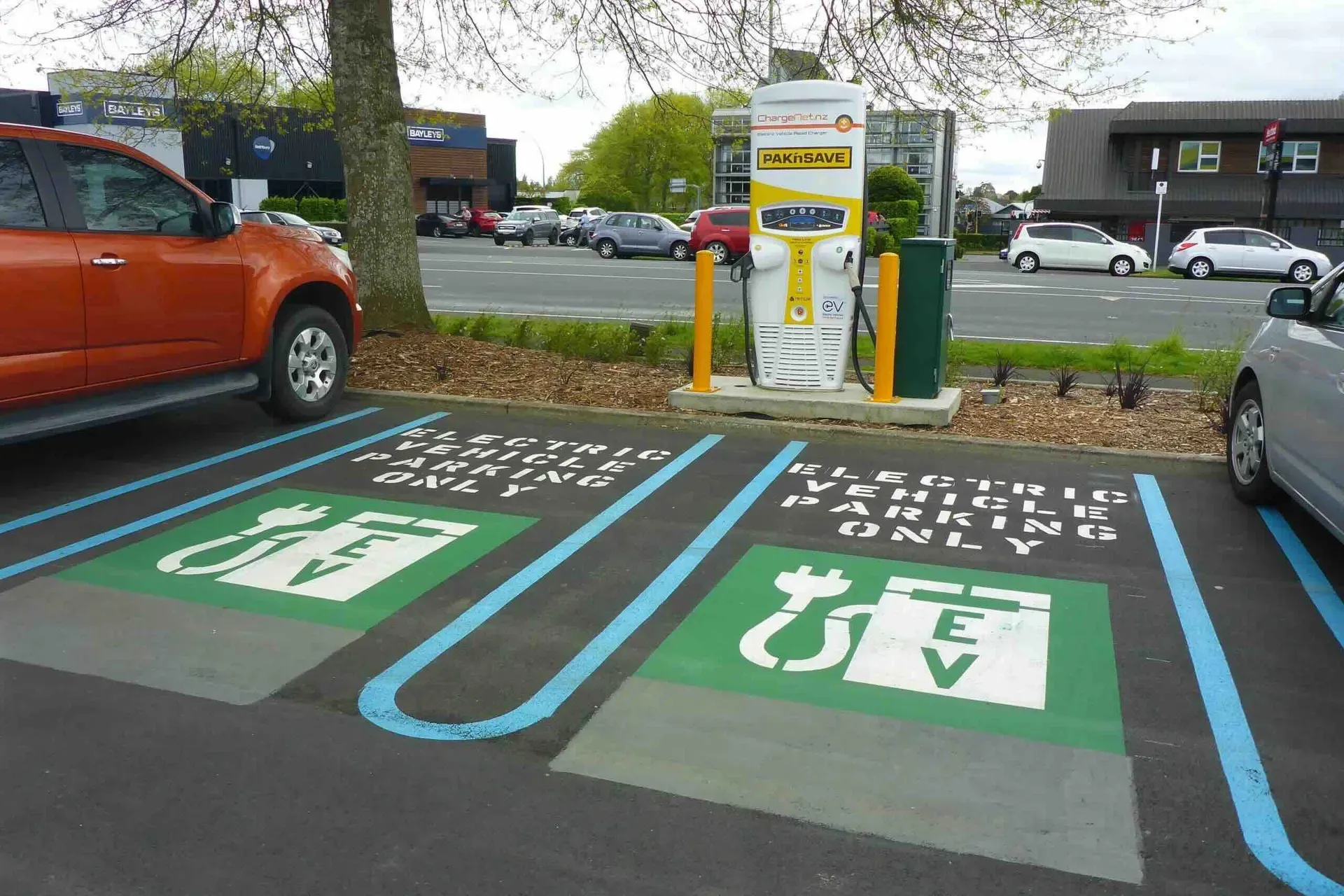"It is the obstacles faced by LA’s in their ability to engage with local businesses and residents that need addressing in the first instance. After all, if you don’t know what the demand will be, how are you supposed to plan for it?"
Katie Hickford Senior Analyst
A new survey looking at the readiness of local authorities (LAs) for the mass adoption of electric vehicles (EVs) in the South East has found that only 18% of those surveyed had consulted with local businesses on an EV charge point strategy, while half had spoken to local residents1. The survey conducted by Cornwall Insight and the Greater South East Net Zero Hub suggests many LA’s will struggle to understand future demand for charging points in their respective areas, something which will be critical in the development of strategies and ensuring fair access to charging for all consumers.
Engaging with local communities is often time and resource heavy for LA’s. As a result, many are facing hurdles in their creation of EV plans. 53% of respondents surveyed indicated that they do not have an electric vehicle charging infrastructure strategy in place, and of these, 17% said they were yet to consider developing a strategy. Cost was identified as the primary barrier to developing a plan, while grid capacity and staffing were also cited as obstacles.
Although the rollout of public charging points has increased rapidly, take-up by local authorities has been mixed. The government expects local authorities to support and deliver EV charge points and is considering taking pre-emptive powers to put a statutory obligation on them to develop strategies and oversee delivery. A consultation on this is expected in 2023.
It is hoped the results of this survey will help the Greater South East Net Zero Hub2 address barriers to the rollout of EV charging infrastructure in more detail, prioritise how best to support EV charging projects and share valuable lessons learned.
Figure 1: Has your local authority engaged with residents to understand the demand for Electric Vehicle charging?

Figure 2: Has your Local Authority engaged with local businesses to understand the demand for Electric Vehicle Charging

Katie Hickford, Senior Analyst at Cornwall Insight:
This survey is a snapshot of the state of electric vehicle (EV) planning across local authorities up and down the country. While the shortage of charge point strategies in many local authorities (LAs) in the South East is concerning, it is the obstacles faced by LA’s in their ability to engage with local businesses and residents that need addressing in the first instance. After all, if you don’t know what the demand will be, how are you supposed to plan for it?
LAs face the challenge of managing limited staff and financial resources, so must ensure the correct type of charge points are put in the locations that need it most. By engaging with businesses and residents, LAs can ensure that infrastructure meets the needs of the community, promotes the adoption of EVs, and contributes to a cleaner, more sustainable future. It is really key that industry supports LAs, providing help and solutions to allow LAs to understand demand and rollout charge points at pace. Government support such as the updates seen this week to the Local Electric Vehicle Infrastructure (LEVI) scheme will also be vital to LAs, as well as best practice and knowledge sharing amongst LAs themselves.”
Reference:
- The survey was of 21 local authorities across the region
- EV guide which covers the range of project stages from initial considerations, through to technical guidance, procurement and management models. Many study examples of successful EV charging projects can also be found on the Greater South East Net Zero Hub’s COP26 legacy case study page.
Notes to Editors
For more information, please contact: Verity Sinclair at v.sinclair@cornwall-insight.com
To link to our website, please use: https://www.cornwall-insight.com/
About the Cornwall Insight Group
Cornwall Insight is the pre-eminent provider of research, analysis, consulting and training to businesses and stakeholders engaged in the Australian, Great British, and Irish energy markets. To support our customers, we leverage a powerful combination of analytical capability, a detailed appreciation of regulation codes and policy frameworks, and a practical understanding of how markets function.

